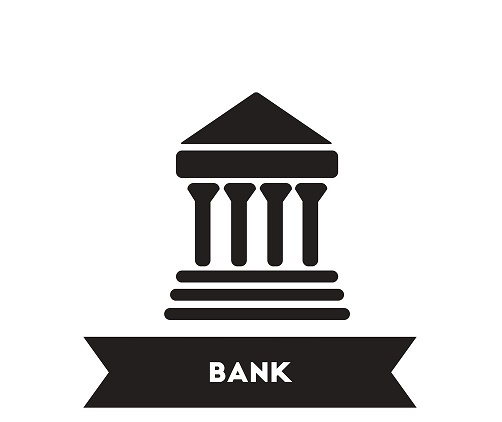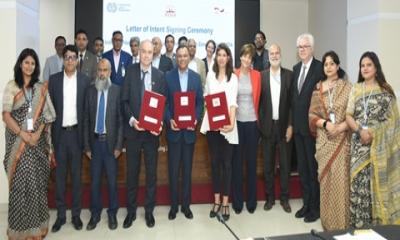-Overall inflation is 9.72% & food inflation 10.42%
-Tax collections fall short by about Tk 38K crore
The interim government took office at a time when the country's economy was plagued by major crises, including inflation, dwindling foreign exchange reserves, declining exports and sluggish growth, inadequate revenue collection, dollar crisis and stagnant private investment that had intensified over the years. Apart from this, the whole country is paralyzed by murder, destruction, anarchy, theft and robbery, as many police stations are empty.
Experts said the newly appointed advisers should immediately focus on ensuring public security, restoring the economy and introducing reforms in the political and electoral system. Dr Zahid Hossain, former chief economist of the World Bank's Dhaka office, said that high inflation, dollar crisis and weakness of the financial sector are the main economic challenges of the government. As the student movement for quota reforms has already given a big jolt to the ailing economy, the interim government should work relentlessly in these sectors.
Besides, the interim government now has to focus on macroeconomic stability. To achieve this, inflation must be curbed, foreign exchange crisis must be overcome and the financial sector must be relieved. Zahid Hossain also said that the interim government should control the issue of defaulted loans to eliminate the plight of the financial sector. Otherwise the liquidity crunch will never end.
To stabilize the money exchange market immediately, the government should ensure that all Forex traders share their exchange rates daily. Ahsan H Mansoor, executive director of the Policy Research Institute of Bangladesh, said, "The law and order situation must be improved first. Otherwise, any measures taken on the economy will be ineffective. Additionally, the unrest that has emerged in recent days, including protests and agitations over bank ownership and control, must be urgently addressed. Measures should be taken so that no one can withdraw money from the bank at this moment. Now that the interim government has taken over, economists will be able to give feedback when the government outlines its plans. It needs to clarify how it intends to deal with inflation, whether it will set up a commission or task force to address problems in the banking sector, or whether it will delegate these tasks to Bangladesh Bank, he added.
Biggest Challenges: Inflation, Slow Growth, Inadequate Revenue
The people faced the double whammy of inflation and skyrocketing prices of essential commodities for more than a year, making life absolutely miserable for the lower and middle classes. According to Bangladesh Bureau of Statistics (BBS) data, inflation has been going on for over a year and a half, forcing people to spend more than their income. The inflation rate in March 2023 was 9.33%, still above 9%. Overall inflation stood at 9.72% and food inflation was 10.42% at the end of June this year. The country's GDP has witnessed lower growth in FY 2024 compared to the target for that fiscal year. According to BBS, production growth in the agriculture sector was 3.37% in FY2023, which declined to 3.21% in FY2024. Industrial sector output growth has declined from 8.37% in FY2023 to 6.66% in FY2024. According to the National Board of Revenue, their tax collections fall short by about Tk 38,000 crore compared to the government’s revised target of Tk 4, 10,000 crore in fiscal 2024. Tk 3 lakh 71 thousand 842 crore of revenue was collected in that financial year.
Dollar market unstable, reserves under pressure
In 2021, the dollar was priced at Tk 85.2 in the country, which has jumped to Tk 117.50 in banks and Tk 114-125 in the curb market in the last few years. Bangladesh Bank has taken multifaceted initiatives to resolve the dollar market crisis, but apparently they have not been very effective. To restore stability in the foreign exchange market, the rate of dollar increased by Tk 7. On May 8, a "crawling peg" was introduced, fixing the intermediate rate to the dollar at Tk 117, up from Tk 110 earlier. On the other hand, foreign exchange reserves fell by 1.3 billion in July and stood at $20.48 billion on July 31, according to the IMF methodology, down from $21.78 billion a month ago.
At the same time gross reserves (including Export Development Fund and loans from reserves) stood at 25.92 billion. The country's foreign exchange reserves have been declining for over a year due to higher import payments and lower-than-expected export earnings and remittance flows. Compared to the last nine months, the remittance flow in the country has decreased in July this year.
Imports falling, export data inconsistent:
The country's entrepreneurs imported various products worth $60.73 billion in the 11 months of the fiscal year (July 23-May 24). It was about 70 billion or 13% higher than in the same period of the previous fiscal. According to Export Promotion Bureau (EPB) data, exports stood at 47.47 billion in the first ten months of fiscal 2023-24. However, after central bank revisions, exports stood at 33.67 billion to 13.8 billion EPB lower than the estimate. Due to this significant deficit, various economic indicators of the country have been adversely affected, Bangladesh Bank said. The current account went from surplus to deficit as exports fell. In addition, the revenue account turned from surplus to deficit.
ZH






